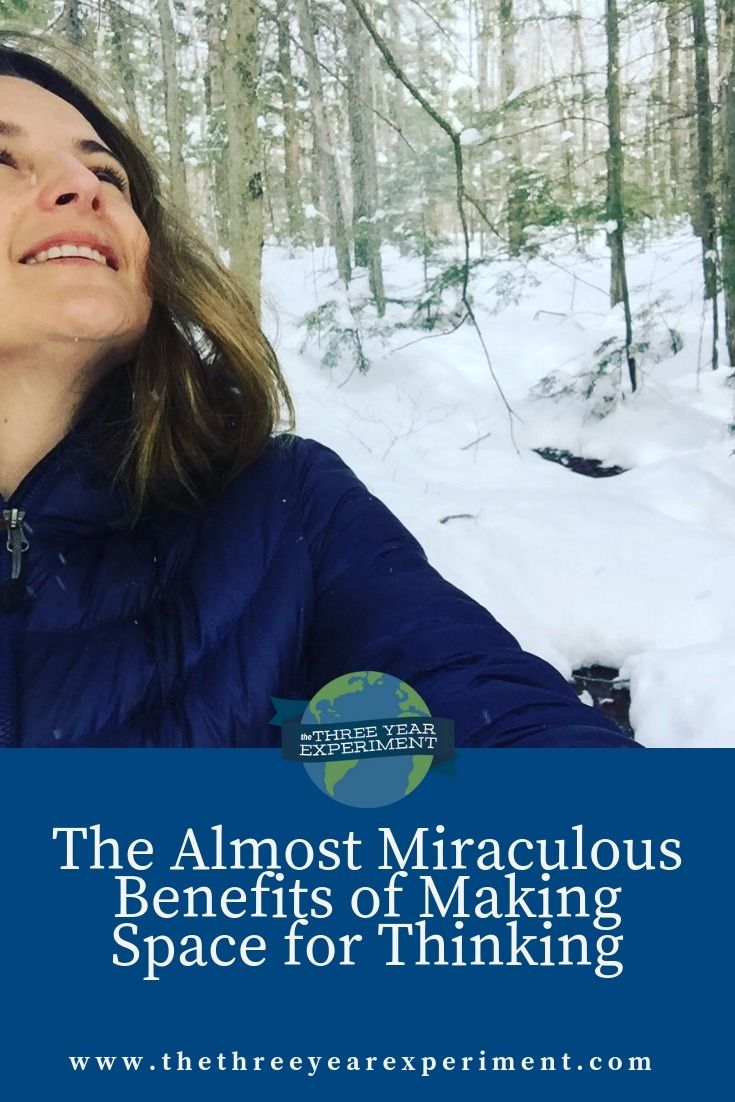Sara Blakely of Spanx© fame once said in an interview that she spends about 45 minutes each morning driving around the streets of Buckhead, the upscale area in Atlanta where Spanx headquarters are located.
Even though she lives really close to her building, she builds in a “fake commute” so that she has time to think (without schedule or stricture), imagine, and allow her mind to wander. Steve Jobs was well known for his daily walks, where he would ponder problems and situations that he was wrestling with at Apple.
The Success Race
When I think about companies like Apple and Spanx, I get an immediate feeling in my gut, a conditioned response. “Wow,” I think, almost subconsciously, “these people are so successful. I need to be more like them.” Then I’ll immediately feel a surge of adrenaline through my body, and a feeling that I need to do more, more, more, faster, faster, faster.

Our society is filled with these “faster, faster” messages. Sometimes they’re literal. I was observing a reading group yesterday where kindergartners are learning their letters, and the teacher actually said to one little boy, “You need to go faster, to keep up with the girls. You’re getting behind!” As if learning were a race. I’m currently reading Thank You For Being Late, Thomas Friedman’s latest book about the acceleration of society, how “the three largest forces on the planet—technology, globalization, and climate change—are all accelerating at once.” Sometimes, as I surf through articles about the mass extinctions happening right now, then feel the political and climate uncertainty, it feels like the end of the world. Like society is running in a crazy, mad race off the edge of a cliff. I was at a Mom’s Night Out and heard at least five or six conversations that were versions of, “I never see you anymore.” “I know. We’re so busy!”
I fall prey to the “more, more, faster, faster” trap constantly. This morning at breakfast, I asked my son if he’d like to restart piano lessons. “Mom,” he answered, “I’m already taking drum lessons. That’s enough.” Wise words, my son. How perceptive that he realizes that cramming in another activity does not add more value; it takes value away.
Go, Go, Go!
So how is it, that when I read about very successful people carving space out of their inevitably busy schedules to think, I have a gut reaction of “speed up, Laurie!”? Well, apparently, the gut has a memory for emotional reactions, much like the brain (for more information on this phenomenon, read The Mind Gut Connection by Emeran Mayer, MD, an expert in the gut and its microbiome). But when I engineer my week so that I have space for thinking and reflecting, then I realize that people who run successful businesses that create new and innovative products must have thinking time built in.
I have been semi-successful at making space for thinking. This is a habit to be developed, like tracking. One of the ways I’ve done this, is by blocking off time on my calendar when I have free mornings. It’s blocked off, so I’m not tempted to schedule an activity or an assignment to be completed in that space. Then, I fix a cup of coffee, sit in my writing chair, and think, or journal. Or both.
A Walk in the Woods
I’m honestly most successful when I take walks. I put on my workout clothes, walk across the street to the bus stop, and drop the boys off. Then, I walk around the three mile loop of road that curves around my neighborhood. I usually run the first mile, then drop off to a walk. I need the pace of a walk to really think well about nothing and everything. There are usually so many threads of thoughts that pop into my brain as I walk. I almost never resolve any of the issues or problems that I think about. Often, I don’t think about “important things;” instead, I’m musing on details, like what activities the kids have after school, what I’ll make for dinner, what blog post I’ll write next. Sometimes big goal thoughts pop in—where will we live in three years? Is Chile the right place for us? North Carolina? Again, I don’t resolve these questions. I just walk with them for a bit, then move on to the next idea thread.

A Blessing for the Whole Day
So why is this process miraculous (or almost miraculous, since I’m trying to tone down the hyperbole a bit)? I don’t know. Thoreau said “An early-morning walk is a blessing for the whole day.” When I am walking in my woods, (which actually are very woodsy and isolated, much like Mr. Thoreau’s Walden Pond, as I live in a rural area in New Hampshire), I feel the rush slip away. There is nothing beeping or blinking. In my thinking chair, I look out my window at my white backyard, at the wild turkeys waddling through the snow, and I don’t feel the pull of all that has not been done. For a moment, anyway. I give myself processing time, time to try and make sense of what has happened the day before, why I felt the way I did, what I really want.
Time with No Plan
I give myself space to be, with no agenda. Much like the little boy learning to read needs time, space, and slowness to sound out new letters and put them together into words, I need space to make sense of all the ideas, thoughts, discussions that happen in a week. Without that space, I plod through life, never making progress. With space to think, I come up with creative new ideas. I find new energy for what matters—I’m going to start a blog! I make decisions to stop doing activities that don’t make sense anymore (Parent Teacher Group).
My goal now is to make the boundaries for my thinking time, for my morning walks, hard and fast. I tend to let other activities creep in and take over my thinking time. My thinking time, and yours, must be sacrosanct. It must be as important as scheduling doctor’s appointments or workouts.
How do you make time for thinking?



One thought on “The Almost Miraculous Benefits of Making Space for Thinking”